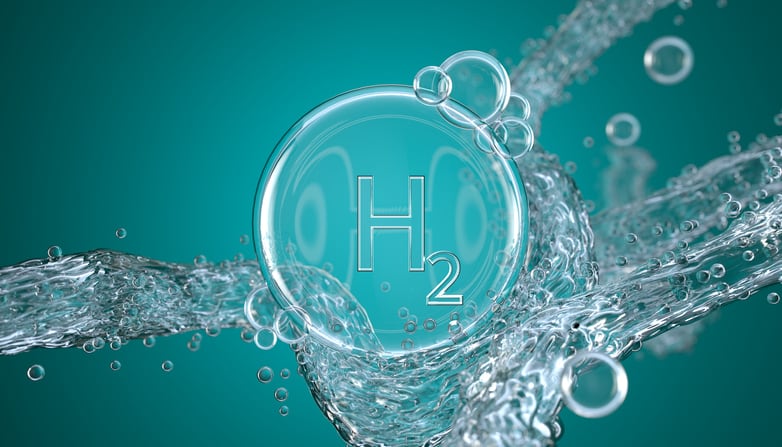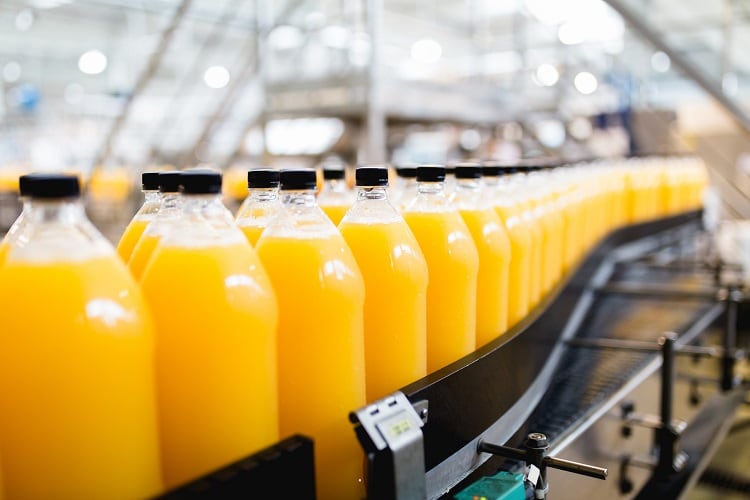The meat-free manufacturer joins the likes of Unilever, which last year begun tests on switching two facilities in the UK to using hydrogen to demonstrate that it can be used as a substitute fuel for natural gas in manufacturing processes. Nestle, too, has said green hydrogen is one potential avenue to pursue as it seeks to halve greenhouse gas emissions by 2030 and reach net zero by 2050.
What’s the appeal? Hydrogen made with renewable energy is completely carbon-free. When turned into electricity, the only emission is water. What’s more, it’s easy to store and transport, it’s claimed.
The UK’s independent climate advisory body, the Committee on Climate Change has described green hydrogen as an essential part of the journey to net-zero, which could be used for fuelling industry and transport networks, and heating homes. The UK government believes that hydrogen will provide between 20-35% of total final energy consumed by 2050. The European Commission recently granted state aid approval of €900 million to the German government to allow the funding of the H2Global hydrogen import programme.
Globally, meanwhile, 131 large-scale projects have been announced since February 2021, taking the total to 359 projects, according to McKinsey & Company. The total investment into projects and along the whole value chain amounts to an estimated $500 billion through 2030.
The ongoing natural gas shortage and high gas prices, meanwhile, has given further impetus to the idea that green hydrogen could present a realistic, sustainable alternative for companies to secure its energy supply and meet their net positive targets.
Quorn taps clean hydrogen potential to save 13,200 tonnes of CO2 emissions per year
Now, Quorn has announced it has teamed up with Protium, which designs green hydrogen infrastructure projects for companies looking to move to low carbon options to achieve their sustainability targets. Protium teamed up last year with drinks giant AB InBev to explore the deployment of zero emission green hydrogen at the Magor brewery in South Wales, one of the largest breweries in the UK.
Protium, together with energy firm Petrofac, will study the feasibility of supplying green hydrogen via a pipeline to Quorn’s production facility in Billingham in the North East of England. Once there, the plan is to use it to fuel the introduction of dual-fuel boilers at the plant (combusting both hydrogen and natural gas blend) and meet its planned production capacity expansion
The Protium team claim it is currently set up to deploy up to 40MW of electrolysis (the process of using electricity to split water into hydrogen and oxygen) which will produce over nine tonnes of green hydrogen per day. Initially, Protium would look to displace part of Quorn's natural gas demand with green hydrogen which could save as much as 13,200 tonnes of CO2 emissions per year, equivalent to removing 7,600 cars from the road.
Quorn plans to reach net-zero emissions across its value chain by 2040. It believes green hydrogen presents a significant opportunity to future-proof and revolutionise the manufacturing process for brands.
“The transformational opportunity which green hydrogen potentially presents is one we are taking very seriously,” declared Mark C Taylor, Chief Engineering Officer at Quorn.
“We are also aiming for net-zero emissions within our operations by 2030. To achieve this, we are considering all options to drive down the carbon intensity of our process heat and electricity consumption,” he added.
“We’re looking forward to deploying our engineering expertise to define the potential for using green hydrogen in Quorn’s production processes,” said Jon Carpenter, Petrofac’s Vice President, New Energy Services. The project, he added, could further serve as a blueprint for other manufacturing companies looking to decarbonise their manufacturing processes across the broader food and beverage manufacturing sector. “It could unlock a solution for decarbonising Quorn’s manufacturing process – one that could benefit the food and drink sector as a whole,” he said.
The hype around hydrogen: haven’t we been here before?
So, there is much buzz currently concerning green hydrogen and its potential to drastically help in the pursuit to cut down on carbon emissions. But cost and availability have traditionally been a barrier to the implementation of green hydrogen and there have been numerous failed attempts over the years to get hydrogen fuel up and running.
What’s different this time? One is the aforementioned energy crunch in Europe which has sent prices soaring in recent months and forced some gas companies to halt or freeze output, thus forcing a quest to find alternatives. Costs are also coming down. “Hydrogen now is different because the technology is more advanced,” Protium CEO Chris Jackson told FoodNavigator.
The costs of electrolysis and renewable power are lower, he explained, while there is an increasing and sustained push for decarbonisation of “hard to abate sectors”. Companies also want “no-regret” pathways to net zero that are technologically deliverable today.
On top of this, it enhances the integration of intermittent renewables, and allows for longer term, lower cost, storage of green energy. “It can be used as a multi-vector fuel, useable for power generation, heat demand and transport usage and it is a cooperative technology that supports other low/zero carbon technologies such as batteries, solar, wind and heat pumps,” Jackson said. “Green hydrogen is a game changer.”




